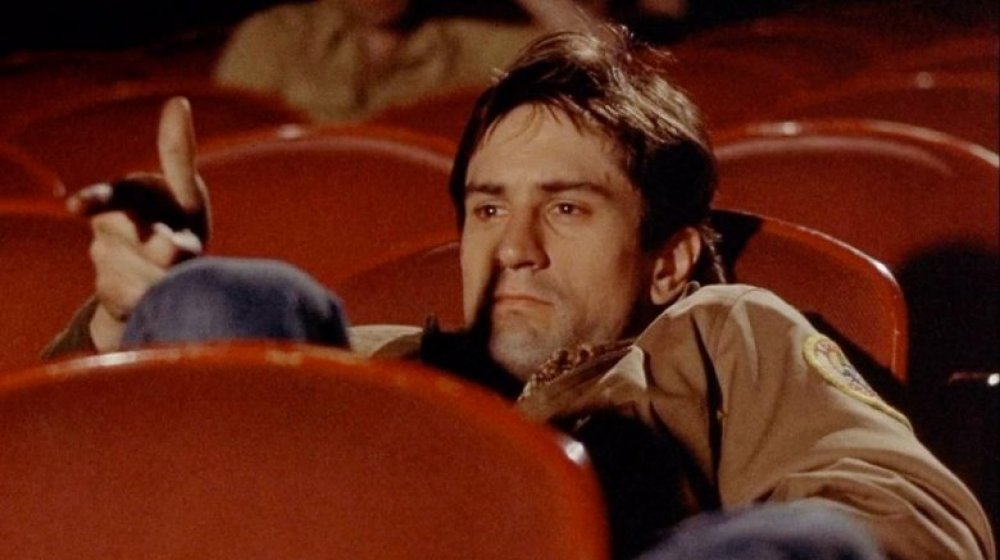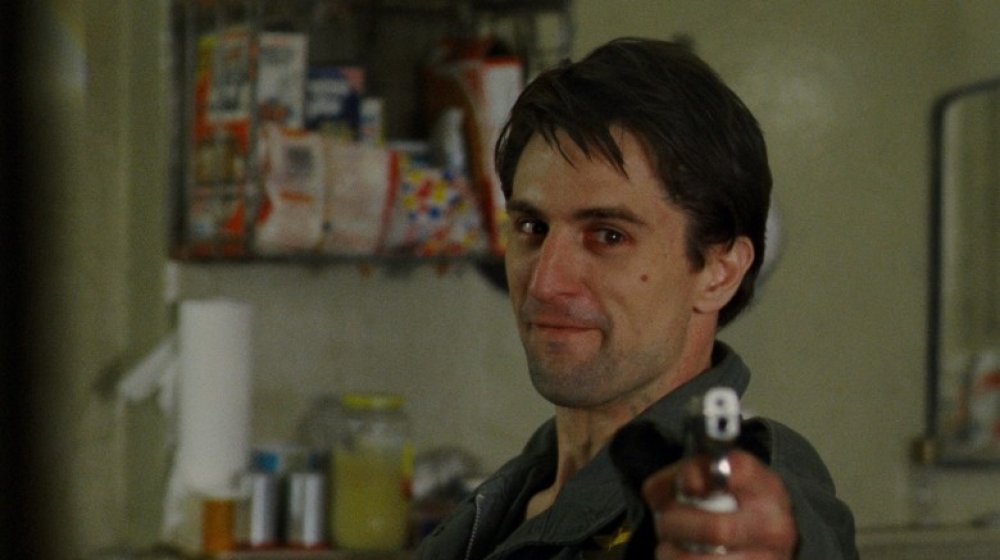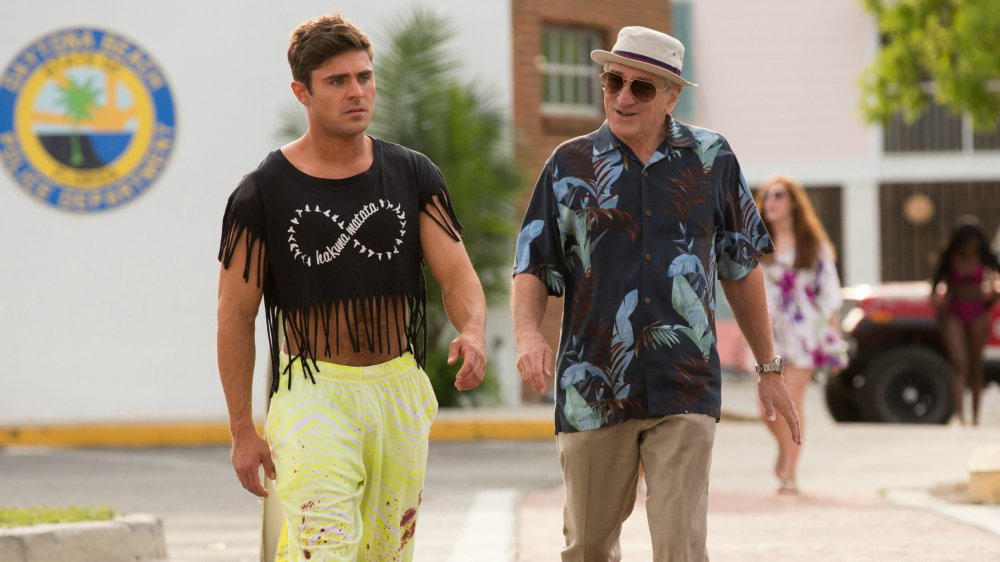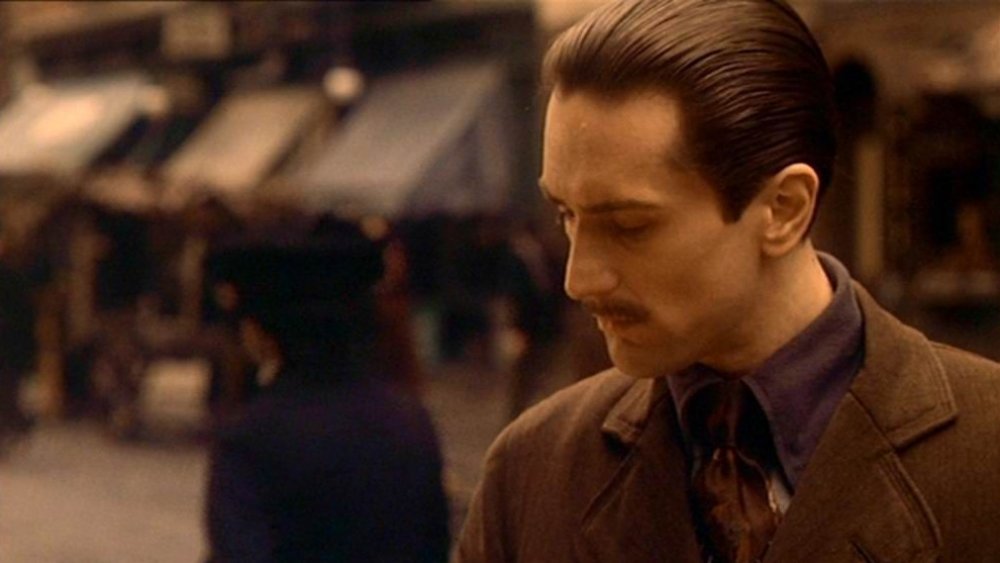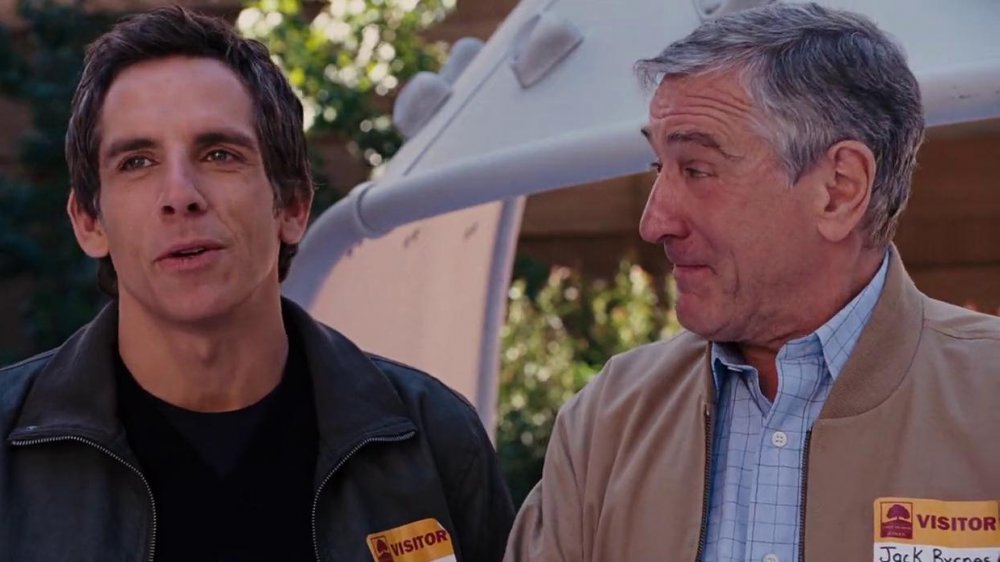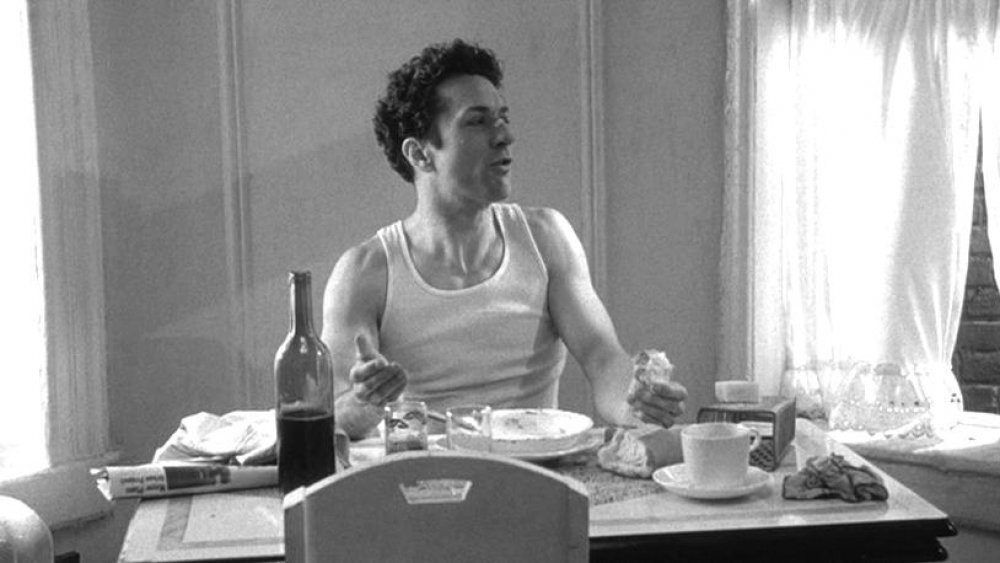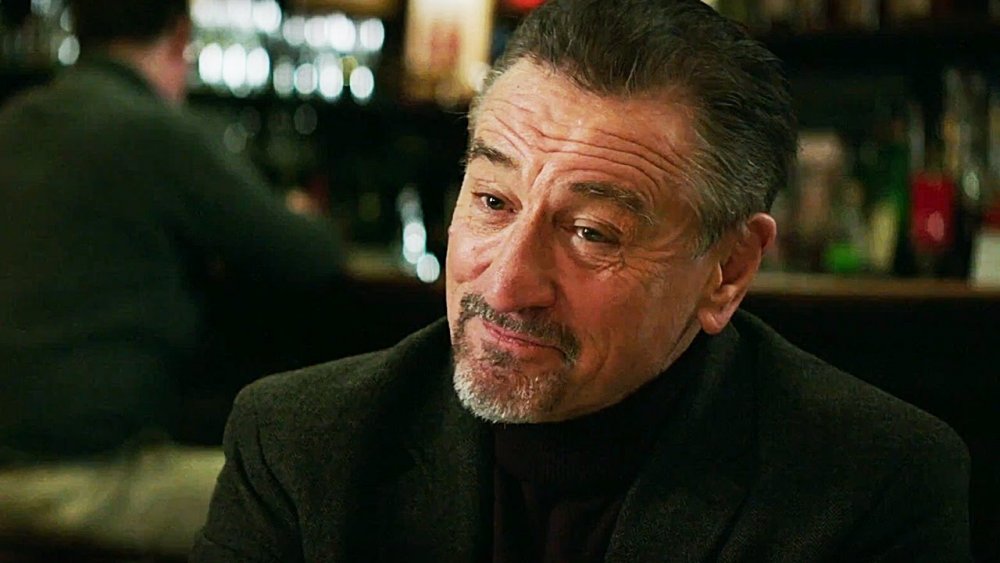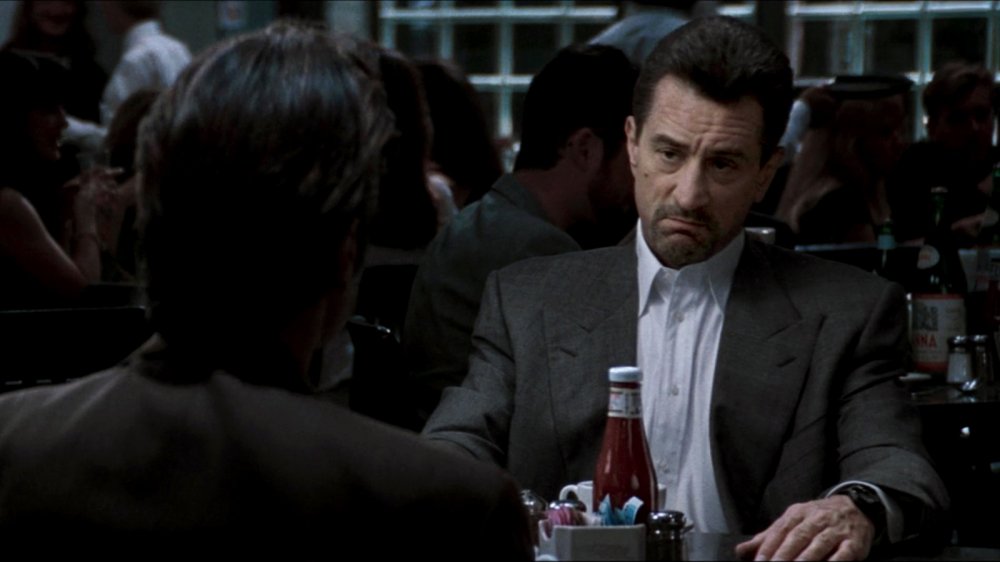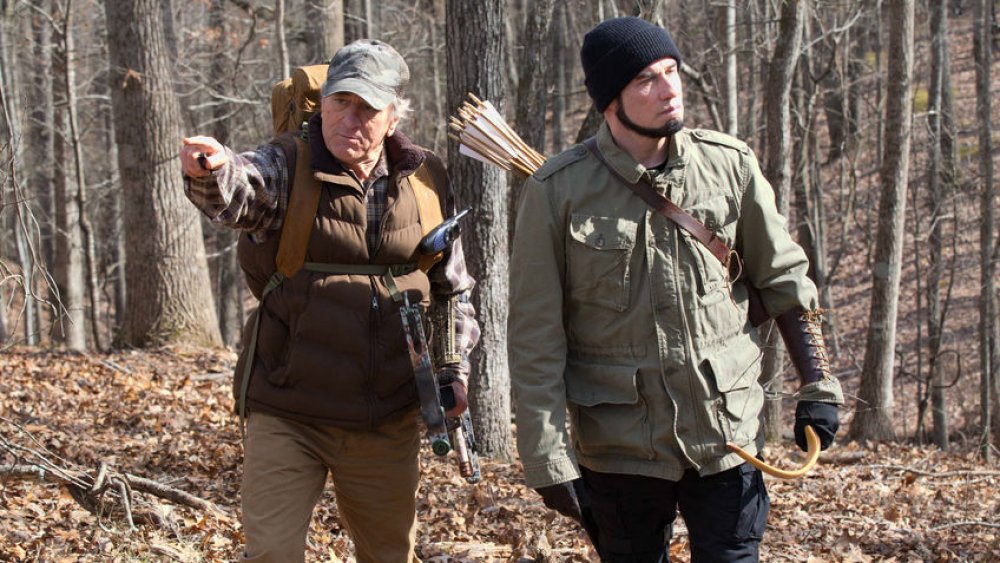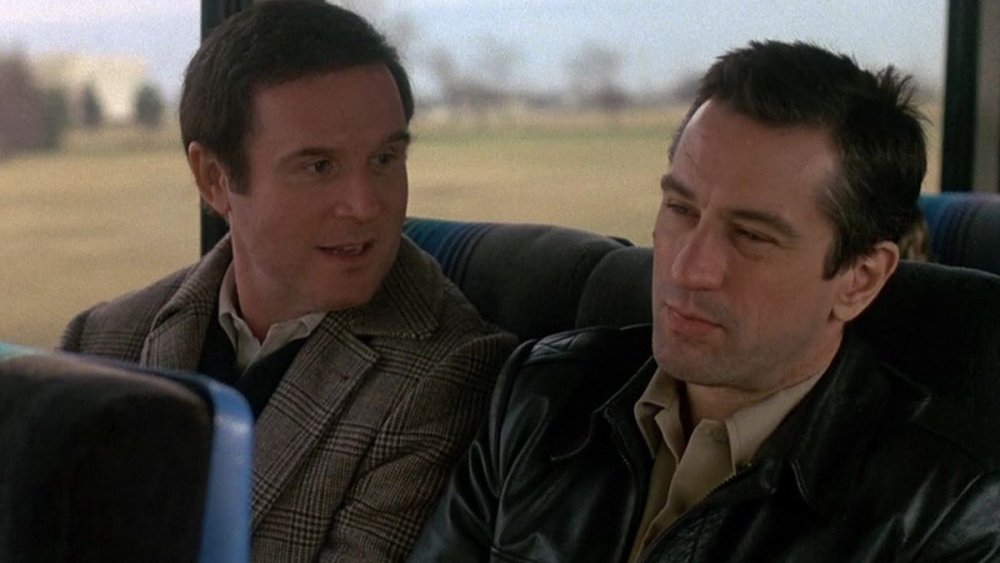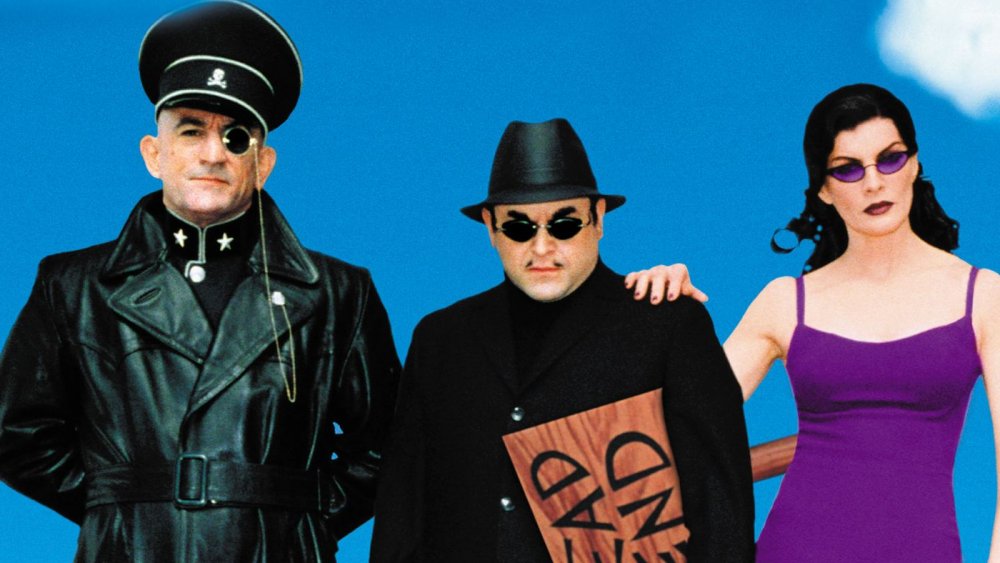Robert De Niro's Absolute Best And Worst Movies
To trace the filmography of Robert De Niro is to trace the career of an actor who's not afraid to go high, go low, and go all in on whatever project he's signed up for — whether it's an acclaimed drama, an unexpectedly wacky comedy, or anything in between. From his youthful days of simmering onscreen anger and stoic machismo to his present-day mix of prestige dramas and late-night comedy antics, De Niro's rollercoaster of a career has been a joy to follow for decades.
Of course, no actor always makes the right choices, and even one as acclaimed as Mr. De Niro is no exception. He's one of the most talented stars of his generation, but he's been known to pick a dud project here and there — and some of those low points would be surprising for an actor several rungs below his exceptional caliber. With all that in mind, yes, we are talking to you, and we're here to tell you about Robert De Niro's absolute best and worst movies.
Best: Taxi Driver
In what may forever remain the most iconic role of his filmography, De Niro's turn as Travis Bickle in Martin Scorsese's career-defining Taxi Driver is honestly enough to grant De Niro legend status as one of the most terrifying, raw, and overall human actors of the 20th century. In this mid-'70s rampage of cinematic male ego, Scorsese, De Niro, and screenwriter Paul Schrader came together to tell the story of a discharged war vet whose foray into the world of being a late-night New York taxi driver surfaces all the most prevalent seeds of rage, angst, and fury bubbling under the surface of post-Vietnam war America.
What's most terrifying about Taxi Driver is how easy of a walk it is for us to completely empathize with De Niro's Travis, totally in lock with the path he goes down even when the choices he makes are insane and reprehensible. It all comes from a place of deeply misguided American individualistic rage that fuels him til the fiery end. There's a reason it catapulted De Niro into leading man status, and why it's stuck with generations of viewers for so many years.
Worst: Dirty Grandpa
There's something of a common theme that emerges when assessing Robert De Niro's "worst" films, and it's usually centered around his not-very-funny attempts to jump into more comedic material. This is certainly not to say that De Niro can't handle a comedy. Quite the contrary — films like Midnight Run, Meet the Parents, and Analyze This provide enough evidence to prove the man can be hilarious when he's given the right material. But when he's given the wrong material, not even De Niro is talented enough to save it.
Take Dirty Grandpa (no, please, take Dirty Grandpa). De Niro's raunchy turn as the appropriately raunchily named Dick Kelly, who goes on a spring break trip with his grandson (Zac Efron) barrels in a depressingly low percentage of laughs, with most attempts at humor couched in pure sexism, racism, and homophobia. Not to worry, though; De Niro still got awards attention for his role, though it came in the form of a "Worst Actor" nomination at the Razzie Awards that year (it's okay, he didn't "win").
Best: The Godfather Part II
If Taxi Driver solidified De Niro as a leading man, then The Godfather Part II provided him the ample runway to jump into the movie stardom stratosphere. Acting as both a prequel and sequel to the Francis Ford Coppola feature that's topped too many "Best of" lists to count, The Godfather Part II is that rare sequel that's able to build upon the success of its predecessor, and even became the first film sequel to win the Best Picture Oscar (taking home the same award won by The Godfather), cementing Coppola's legacy as well as that of the cinematic Corleone family.
Here, De Niro takes on the role of Vito Corleone, who will one day become the same mob boss played by Marlon Brando in the original film. Earning De Niro his first Oscar (for Best Supporting Actor), his subtle emulation of the future, older Vito provides the actor with the opportunity to command the screen with an arresting presence (and quite a dashing mustache too). With his performance working to anchor the film's past scenes of Corleone's rise to power, De Niro became one of Hollywood's brightest up-and-coming performers. He was just getting started.
Worst: Little Fockers
Robert De Niro's foray into comedy has had its own strange arc of hits and misses, but no miss has struck out as hard as Little Fockers, the third entry in the Meet the Parents trilogy that no one asked for in any sense. Sometimes you don't need to visit the same comedy well on multiple occasions, and that certainly seemed to be the case for this series, over the course of which De Niro's Jack Byrnes struggles to deal with his son-in law Greg Focker (Ben Stiller). In this installment, the conflict is derived from Greg's parenting attitude towards his twins.
Double the kids, double the laughs, right? Not so in this triple take lazy retread of the same jokes thrice told in the saga of the Byrnes and the Fockers. Its boring and repetitive sex jokes, dad jokes, and uninspired attempts at sincerity land Little Fockers as a sad "Why This?" on De Niro's resume. Here's to not meeting any more Parents, or Fockers, anytime soon.
Best: Raging Bull
Any list of Robert De Niro's best films could easily fall back on his collaborations with Martin Scorsese, but the best showcase of their harmonious cinematic relationship might have to be Raging Bull, a symphonic one-two punch of anger, fear, and the dangers of power and success, not to mention the film that earned De Niro his Best Actor Oscar. Hell, give or take a Rocky or two, it might just be the best boxing film that's ever been made.
Not only is Scorsese working at the top of his powers, dramatizing the journey of real-life boxer Jake LaMotta through a stark and focused black and white film, but De Niro's powerhouse performance verges on revelatory, a deadly mix of emotional weight and physical sportsmanship that proves to be ultimately explosive. Taxi Driver put De Niro's chaos on the streets, but Raging Bull put him in the ring, and proved to be an ultimate knockout of a film.
Worst: The Comedian
It all seemed so perfect in hindsight: Robert De Niro playing a down-on-his-luck stand-up comic in a new dramatic comedy directed by Taylor Hackford (An Officer and a Gentleman, Ray), stuffed to the brim with the best in the world of stand-up comedy. Add a handful of fellow veteran performers like Charles Grodin, Danny DeVito, and Edie Falco, premiere the film at the AFI Fest, and release it during peak awards season. What could go wrong?
Well, when your movie isn't very good, quite a lot, unfortunately. Though The Comedian seems like an interesting, fun means of giving De Niro a fresh new leading man role, it's hard to make something interesting out of the story of a comedian with hackneyed jokes performed by an actor whose best work has never been in live comedic performance (the less said about his recent Saturday Night Live appearances, the better). It's hard to stay compelling in a film called The Comedian when both its lead and the jokes he's provided just aren't that funny. That's the real joke, and it was on the audience.
Best: Heat
Director Michael Mann has long been known for his sleek and stylish urban action dramas, and the arguable peak of his filmography came with his 1995 cops-and-robbers action classic Heat. The story throws Robert De Niro and Al Pacino — sharing the screen for the first time — into deep conflict against one another in a showdown that would define action filmmaking for the decade. De Niro plays professional thief Neil McCauley, whose thieving exploits are in direct sight of Lieutenant Vincent Hanna (Pacino). Their cat-and-mouse game roars across Los Angeles and things get pretty, uh, heated, all leading up to an epic and unforgettable airport showdown like no other.
With Heat, De Niro delivered a spellbinding performance in a nearly flawless thriller that helped rebrand him as a gritty contemporary action star, ready to indulge himself in "prestige" cinema that set itself apart from the modern blockbusters of the decade. Considering he'd close out the '90s with arguably the best comedy of his career, it just goes to show that at the time, De Niro could do pretty much anything.
Worst: Killing Season
Robert De Niro has been part of a multitude of fantastic team-ups over the years, from Charles Grodin to Al Pacino to Sylvester Stallone, just to name a few. But not all of these partnerships have turned out to be as fruitful as one would hope, and none have been as rank and vile as his tragically boring, painfully inept pairing with John Travolta in 2013's Killing Season.
De Niro and Travolta play brutal enemies turned friends turned enemies turned friends again in this bizarre cat-and-mouse hunt with Travolta's bizarrely accented Serbian soldier trying to "hunt" De Niro's American war vet for his country's crimes against Serbia. Maybe it's Travolta's hammy performance style that drags De Niro down with him, or maybe it's director Mark Steven Johnson's poorly constructed attempt at a thriller, but after Killing Season, it's hard to see anyone clamoring for another Travolta/De Niro team-up anytime soon. Or ever.
Best: Midnight Run
What happens when you put Robert De Niro and Charles Grodin on a journey across America in one of the strangest, funniest, most memorable action comedies of the 1980s? You get Midnight Run, the film that utilizes De Niro's anger-fueled persona to its best comedic ability as bounty hunter Jack Walsh, whose latest bounty, an accountant accused of mass embezzlement (a deliriously deadpan Grodin) causes a lot more trouble than Walsh was bargaining for.
With Martin Brest's capable high-speed chase meets laugh-a-minute jokes presentation, memorable supporting performances from Yaphet Kotto, Dennis Farina, and Joe Pantoliano, and all of it underscored by an absolute bop of a score by Danny Elfman that utterly screams "late '80s," Midnight Run succeeds by funneling De Niro's macho energy into a tightly wound, comedically explosive chase across the country that ultimately pays out like a slot machine by the very end.
Worst: The Adventures of Rocky & Bullwinkle
What is there to say about The Adventures of Rocky and Bullwinkle that isn't evident from the fact that there is a live-action Rocky and Bullwinkle movie? One of the strangest film adaptations of the last few decades, helmed by stage director Des McAnuff from a screenplay by future Oscar winner Kenneth Lonergan (again, what?), The Adventures of Rocky and Bullwinkle is so focused on trying to convince you how odd it is that there's a live-action Rocky and Bullwinkle film that it falls into an inescapable cartoon manhole of self-parody and meta commentary.
This extends to the bizarre casting and performance of Robert De Niro as the film's de facto villain, Fearless Leader, who has escaped the cartoon world with his sidekicks Boris (Jason Alexander) and Natasha (Rene Russo) in an attempt to take over the minds of the world's citizens. His performance is, naturally, outlandishly cartoonish, even resorting to a strange Pottsylvanian spin on Taxi Driver's "You talking to me?" scene that garners about as much laughter as an anvil to the head. De Niro is done no favors by this early 21st-century moose of a film — and neither was the audience.
